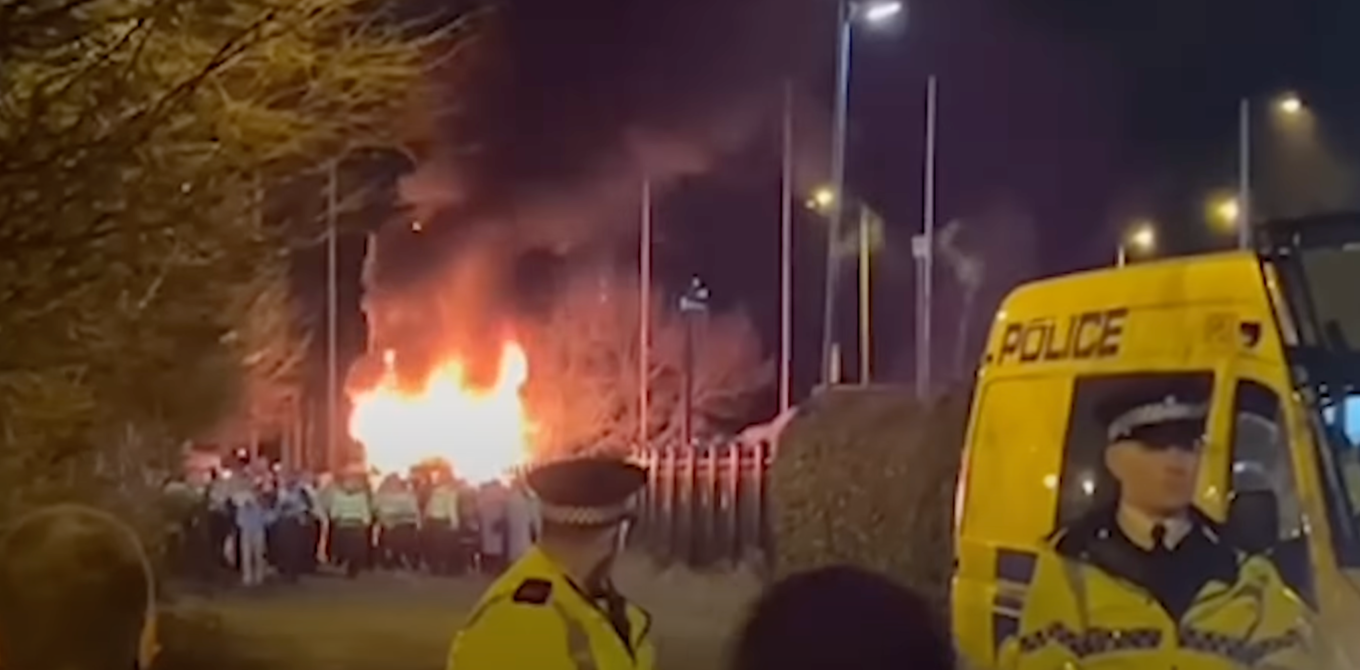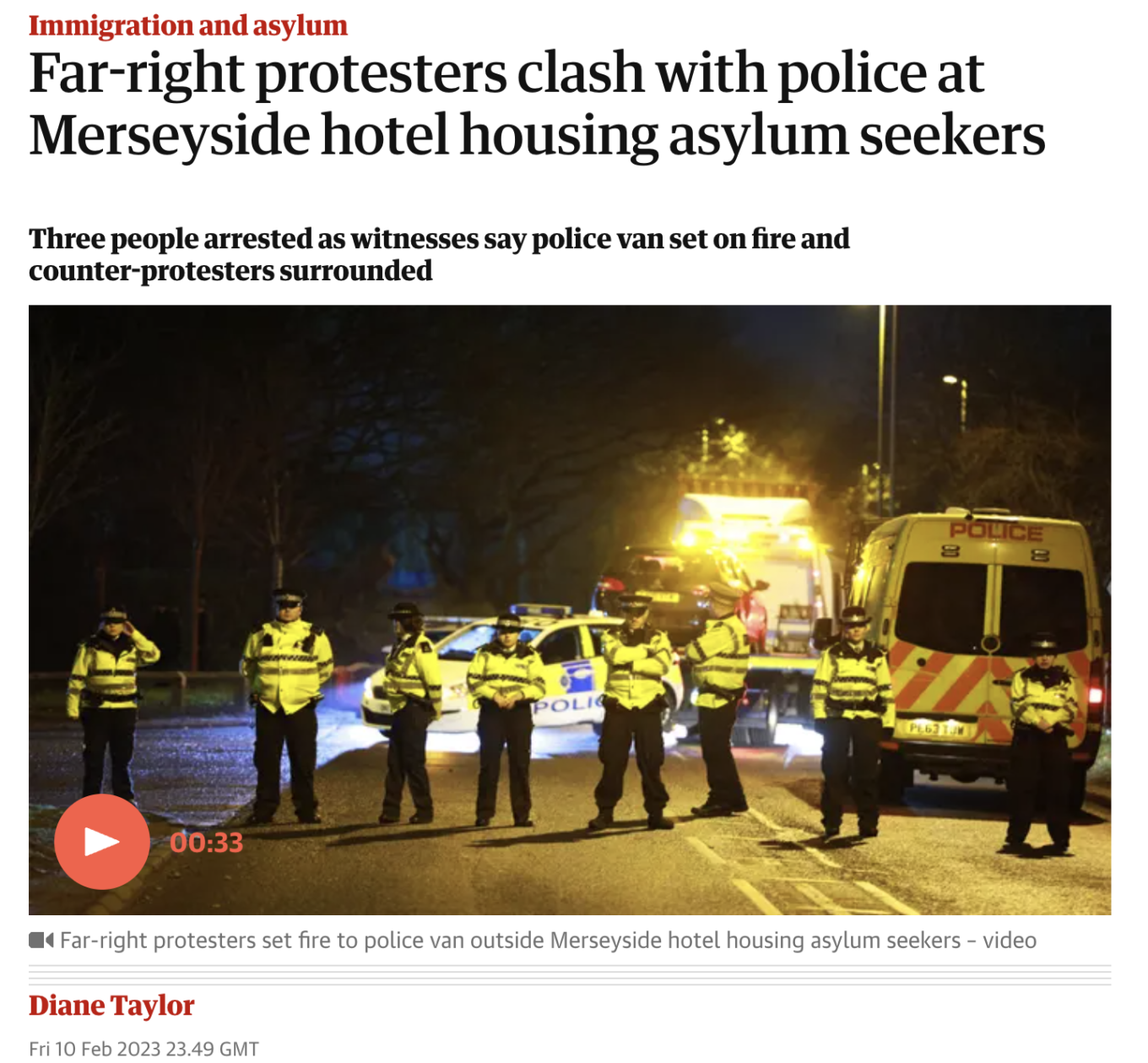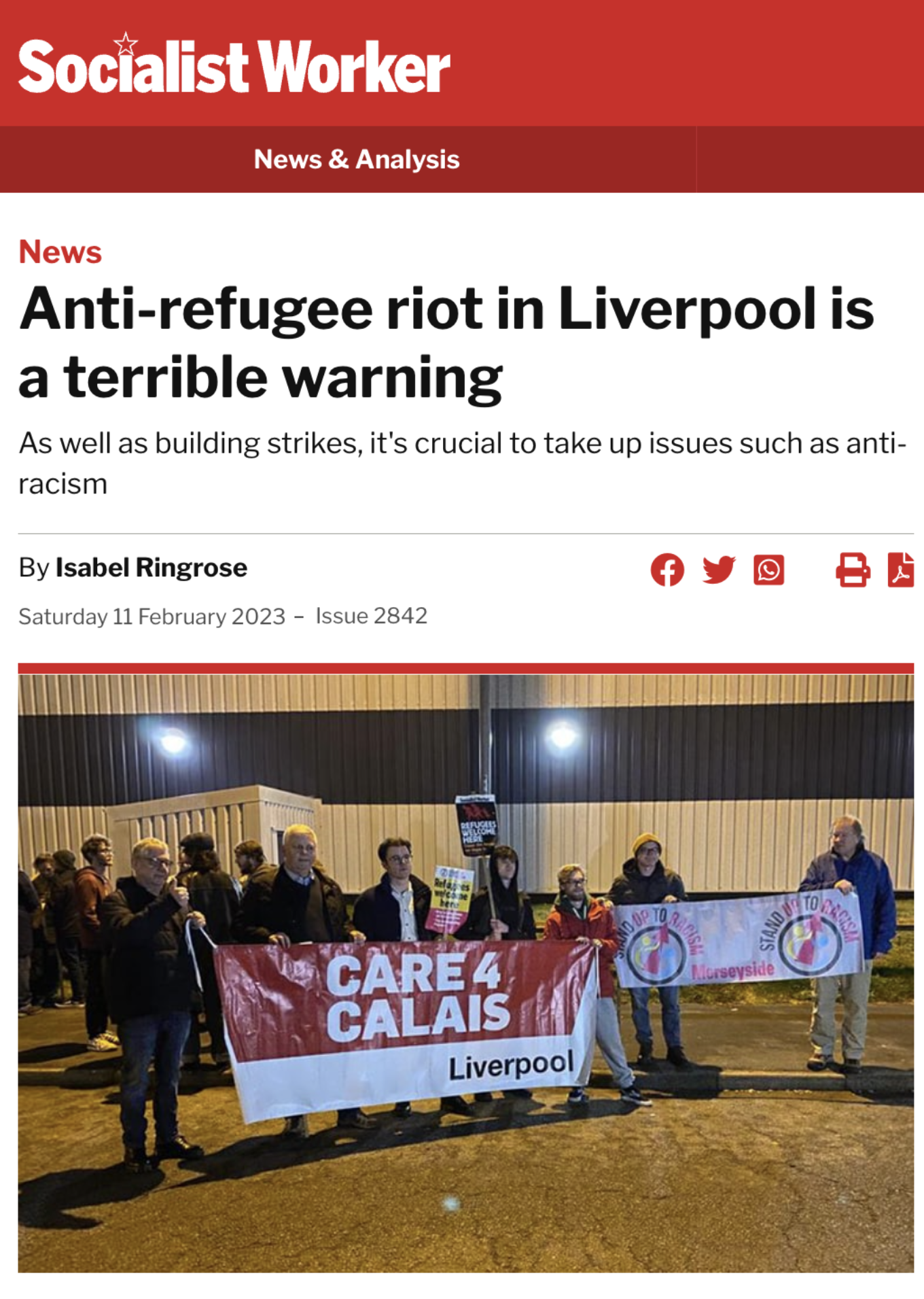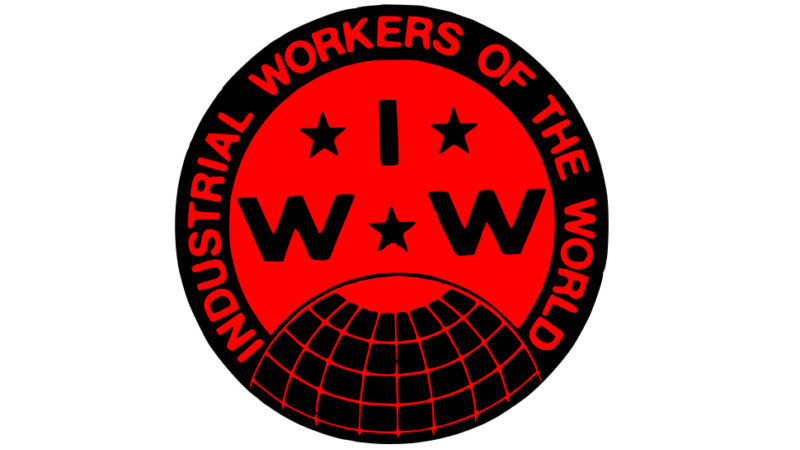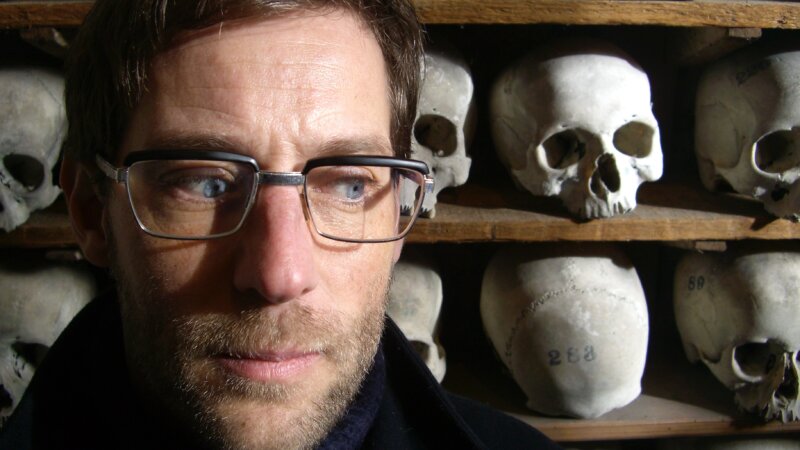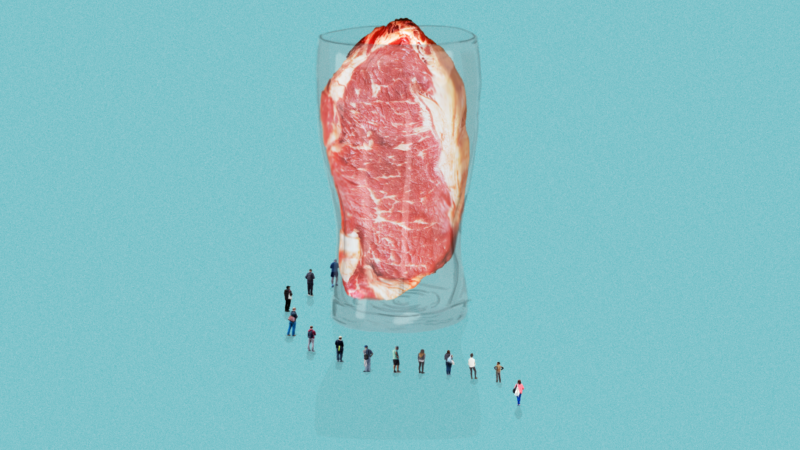Anti-refugee rioters are a part of the fabric of Britain
Recent racist attacks on refugees in Home Office hotels demonstrate the clear links between anti-refugee media coverage, fascist 'protesters' and oppressive government policy.
Racist attacks on refugees housed in hotels are the inevitable result of a morally bankrupt political class and a complicit media. Groups of organised racists recently gathered outside hotels in Liverpool and Rotherham to protest the presence of refugees. The Home Office has been criticised for not only forcing refugees awaiting ‘processing’ into hotel accommodation, but also for their rhetoric around refugees more broadly.
What are these ‘Home Office hotels’?
A 2022 investigation from Corporate Watch and the Canary found that nearly 55,000 refugees are “currently housed in the Home Office’s ‘contingency accommodation’ waiting to find out if their asylum claim will get approved.” It notes that “the UK’s asylum housing contracts have been wholly privatised since 2012.”
In January 2023 another investigation by the Observer found that hundreds of child asylum seekers had been kidnapped from these same Home Office hotels. Over 100 charities wrote to Rishi Sunak, arguing that “there is no legal basis for placing children in Home Office hotel accommodation.” The conditions in these hotels, used as processing placeholders for refugees, are dire.
Racist attacks
At the beginning of February, a planned demonstration of people ‘protesting’ outside a hotel in Knowsley, Liverpool that had refugees inside “descended,” as the Guardian reported, “into violence.” They set a police van on fire, threw stones, and brandished hammers and fireworks.
A week later, These Walls Must Fall, a network of migrant campaigners, shared images of another rally outside a hotel in Rotherham which, again, had asylum seekers inside.
Yorkshire gathered in hundred’s yesterday in solidarity with People seeking Asylum in the hotel in Rotherham. Our community is ready to organise against racism sending a clear to say No to Racism. A community safe for all. @SYMAAG @Right_to_Remain @SheffCityofSanc @vicasokoya pic.twitter.com/QseIMifemP
— These Walls Must Fall (@wallsmustfall) February 19, 2023
The Socialist Worker reported that:
Various fascist groups…had called an anti-refugee protest. It targeted people housed in a former Holiday Inn—now run by the Mears company—in Manvers, several miles outside Rotherham.
As noted by the Corporate Watch/Canary investigation, Mears is a privately run company.
The actions of these fascists, however reprehensible, are entirely in step with modern politics. Too often, racists who don’t want refugees entering the country are perceived as a fringe element. It’s treated as though it’s an extreme position, when instead it’s a societal problem. An examination of how both these attacks were reported on by the media reveals much about how these fascists felt comfortable enough to go and ‘protest’ the existence of refugees.
‘Clashes’
Refugees, and immigrants more generally, are covered a lot by national media. Given this onslaught, it’s easy to become desensitised to the language used to dehumanise refugees and peddle anti-refugee narratives.
The Guardian’s headline was: “Far-right protesters clash with police at Merseyside hotel housing asylum seekers”:
Their coverage read:
Anti-fascist demonstrators also attended and one said the far-right protesters had split into three groups and surrounded the smaller number of anti-fascist protesters.
Presumably, the anti-fascist demonstrators were there to protest the actions of fascists, but by using “far-right protesters” the Guardian casts a racist mob in a more accepting light. It’s questionable, given the background of the incident, that “protest” should be used at all; it would make more sense to use words like “attack” or “riot.”
The Socialist Worker did just that, leading with a headline that read: “Anti-refugee riot in Liverpool is a terrible warning.”
They described what the Guardian called “protestors” rather differently:
Around 450 thugs gathered around the Suites hotel shouting racist abuse. Some were armed with petrol bombs and set a police van on fire.
The distinction might appear negligible, but it reveals much about how this incident can be understood in terms of attitudes towards refugees in Britain.
Evidently, the media is capable of using loaded words like “thugs” or “riots” or “attacks” when private property is attacked. This isn’t to say the Guardian didn’t use the word “thugs” in relation to the attack on the refugees in the Knowsley hotel in any of its other coverage. But covering immigration involves micro choices that impact the macro representation of whether refugees belong within our borders.
Belonging
The BBC also used the word “protest” in their headline, with the body of the article reading:
A police van was set on fire after a rally against refugees and a counter-protest by pro-migrant groups took place near the Suites Hotel, Knowsley… A couple of hours into the action, the "initially peaceful" protest grew violent.
By noting that the “protest” was “initially peaceful”, a
connotation is drawn between peaceful protests as acceptable and violent
protests as unacceptable. In isolation, there’s nothing obviously wrong
with this. But in the context of racial injustice we know this isn’t
true.
People of colour, and black people in particular, are viewed as thugs and uncontrollably violent forces when facing any interaction with police and protest. By virtue of being white ‘protestors,’ these fascists immediately have an unearned innocence ascribed to them. Attempts are made to understand their position, their backgrounds, their class. Their obvious violence is not as much of a problem as it would be if people of colour had set a police van on fire. Whiteness is allowed unending generosity of its motivations; non-white people are always considered representatives of their communities.
The same BBC article quoted Sir George Howarth, MP for Knowsley, insisting that: “Those demonstrating against refugees at this protest tonight do not represent this community.”
What else do they demonstrate? Are we to believe that there is nobody in Knowsley who believes there are too many refugees? Nobody who is a resident of Knowsley, or the UK, that showed up to scream and intimidate refugees stuck in a Home Office hotel? Where did these people come from?
A media that functions in service of people, not power, would be a genuine challenge to racism and fascism. That’s plainly not what we have in the UK.
Accountability
Howarth’s comment echoes a common attitude to racism in the UK, a defensiveness which insists that the UK is not racist, and in fact welcomes refugees. This sits in stark contrast to constant anti-refugee coverage which emboldens fascists into believing themselves to be representing their communities.
Not that these fascists need much coaxing, if the government is any standard. Home Secretary Suella Braverman has referred to migrants as an “invasion.” As Enver Solomon, chief executive of the Refugee Council explained: “This refugee crisis is of the government’s own making.”
The Nationality and Borders Act has been decried by Amnesty International as a “racist” piece of legislation which “will create significant obstacles, penalties and harms to people seeking asylum in the UK.” The Good Law Project referred to the Act’s powers to deprive people of their citizenship as something that has a “disproportionate impact on non-white British citizens.”
The reputation of the UK press as constantly peddling tacit and explicit support for racists and fascists mirrors the racist legislation being produced by the government. How exactly are the likes of thugs in Liverpool and Rotherham not representative of their communities? How would that distinction be made to refugees trapped in hotels, after long journeys to reach Britain’s shores, only to be met with fascists screaming in their faces and protesting their very existence?
There may well be many of us who deplore and resist the racist and anti-refugee violence of these people. But who are we to separate ourselves from those in our communities who would prefer to see refugees and brown people wiped out from Britain? Fascists and racists do not emerge in isolation, but in community.


